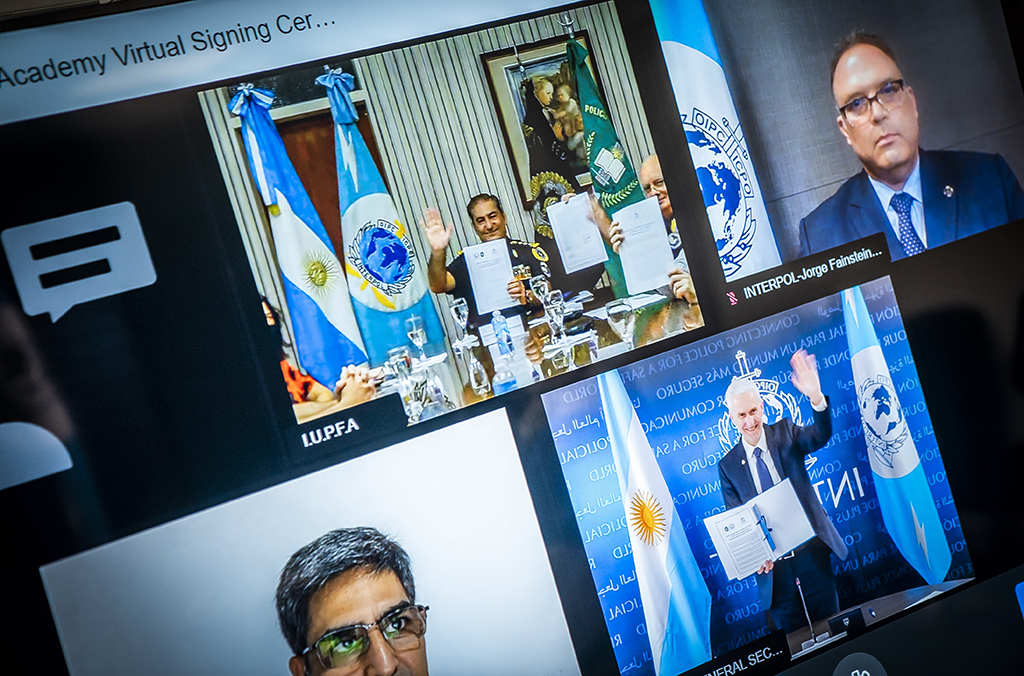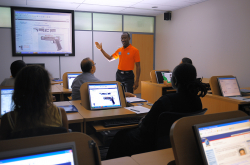LYON, France – The University Institute of the Argentine Federal Police has become the newest member of the INTERPOL Global Academy.

In a virtual ceremony, INTERPOL Secretary General Jürgen Stock, Commissioner General Juan Carlos Hernández, Head of the Argentine Federal Police and Esteban Neme, Rector of the University Institute of the Federal Police of Argentina signed the agreement between the two organizations.
“As a leading model of police cooperation, I am delighted that Argentina is now a part of the INTERPOL Global Academy,” said Secretary General Stock.
“The University Institute of the Argentine Federal Police will bring additional academic rigour to the Academy as well as ensure law enforcement officials across the globe, and particularly in the Americas, can reap the benefits of quality training programmes,” added the Secretary General.
Commissioner General Hernández said the signing was a significant moment.
“Argentina is committed to being a strong and active member of the INTERPOL Global Academy, using the latest technologies and methods to train our forces.
“Capacity building and training are key pillars in the ongoing professionalization of our officers to help us constantly achieve results,” said Commissioner General Hernández.
Select training courses
Created in 2019, the INTERPOL Global Academy is a network of trusted law enforcement national or regional education institutions providing a global approach to law enforcement training.
Current members are the National Police of Colombia, the Korean National Police University, the Naif Arab University for Security Sciences (NAUSS) in Saudi Arabia, the National Police College in Rwanda and the National Police Training and Development Division in Spain
The Global Academy supports the creation and delivery of select digital and face-to-face training courses, covering INTERPOL tools and services, crime areas, and other law enforcement topics.
Members also help identify and coordinate responses to training needs and contribute to a knowledge exchange platform to advance law enforcement education through cutting-edge training tools and methodologies.
Countries involved
See also
Related news

Capitalizing on immersive learning to fight IP crime
26 September 2023





